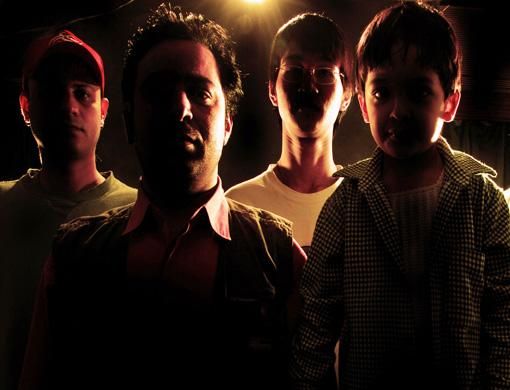New Delhi: "If someone in your family is missing, it helps to be affluent," said Tulsi. Her 9-year-old son, Ranbir went missing while playing in front of his house in Trilokpuri, east Delhi. After searching for him for hours, Tulsi had filed a complaint at the police station.
Three years later, Ranbir is still missing. And Tulsi has only her poverty to blame. "Imagine, senior police officers took personal interest in Anant's kidnapping case all because the child belonged to the rich and influential. Also, the entire visual and print media provided live coverage to the incident. But no one cares for the poor," she lamented.
Tulsi still visits the police station only to hear the same answer, "If and when her child is found, she will be intimated." She has lost hope of ever seeing her son, just as several others have done like her.
The startling revelation is that at least some of the missing would have been found if only efforts were made to trace them. In 2006, till November 15, a total of 13,541 people had been reported missing. And the number of traced was a dismal 7,483.
Deputy Commissioner of Police, Crime Branch, Amarjeet Singh Cheema makes a candid confession: "Sadly, the Delhi Police neither has the means nor the workforce to go looking for the lost."
"Although the missing figures are correct, there is no way one can substantiate data of the traced persons," he said. The officer said, "Families come and report about the missing, but once the person is found, few make an effort to inform the police."
The present population of the city being above 15 million, the staff strength of the Missing Persons Squad of the Delhi Police is a meagre 15 personnel. Moreover, their job is only confined to storing the data collected from various sources including the Centralised Control Room and police stations all over the city.
Pressure
DCP Cheema, a Special Task Force officer, who holds an additional charge of the Missing Persons Squad said: "We realise that the disappearance of a loved one brings about heartbreak and anguish and the families go through tremendous pressure, but we find ourselves helpless."
His grouse was that if the corporate sector took up the social responsibility of highlighting details of the missing persons on television channels during prime time, the number of traced would be much higher.
"Several people who constitute the missing figures include those who either go away on their own due to various personal or family reasons including abject poverty, or who are mentally not sound," he said.
Holding a photo of their 22-year-old son Dharam for several months, Ramesh and Ratna went about looking for him in and around Delhi. In March 2002, he had suddenly disappeared from their life one evening.
"Three years later, when a close friend of Dharam visited us, we presumed he had brought the worst news," said Ramesh. But the parents were in for another shock. Dharam wasn't missing. He was only keeping a low profile.
"We did not know how to react. Whether to feel happy at the fact that our son was alive or simply bear the pain that he had severed his ties with us," Ramesh said.
The son sounded apologetic when the parents spoke to him over the phone and tried to convince him to come back. "But when he said that he had taken up a job in a neighbouring town and was happy without the family baggage, we saw no point in saying anything further," Ramesh added.
Nightmare
The couple knew their son was stubborn, but never imagined he could be self-centred. They saw no point in approaching the police station to report that their son had been traced. "No one ever gave us a convincing answer all the while when he was missing. So nothing mattered," Ramesh said wryly.
Fifteen-year-old Deepak ran away from his house in Nangloi, west Delhi. He had left after a tiff with his mother. The exasperated parents sought police intervention and assistance. A week later, their son returned. "I wanted to teach my mother a lesson, but I began missing her and decided to return," he said.
"A missing child is a parent's worst nightmare. Children who run away like this shouldn't be made to get away with it," said a concerned neighbour. "It's kind of amazing how they can cut off ties so abruptly. Running away from the house should be considered a criminal act," he added.
Numerous people go missing every day. But there is no way one can find the legitimate missing cases.
Many of them are just living under the radar. Some are never found and others end up suffering physical assault and death. Only the few fortunate get reported in the media and are sometimes found.













